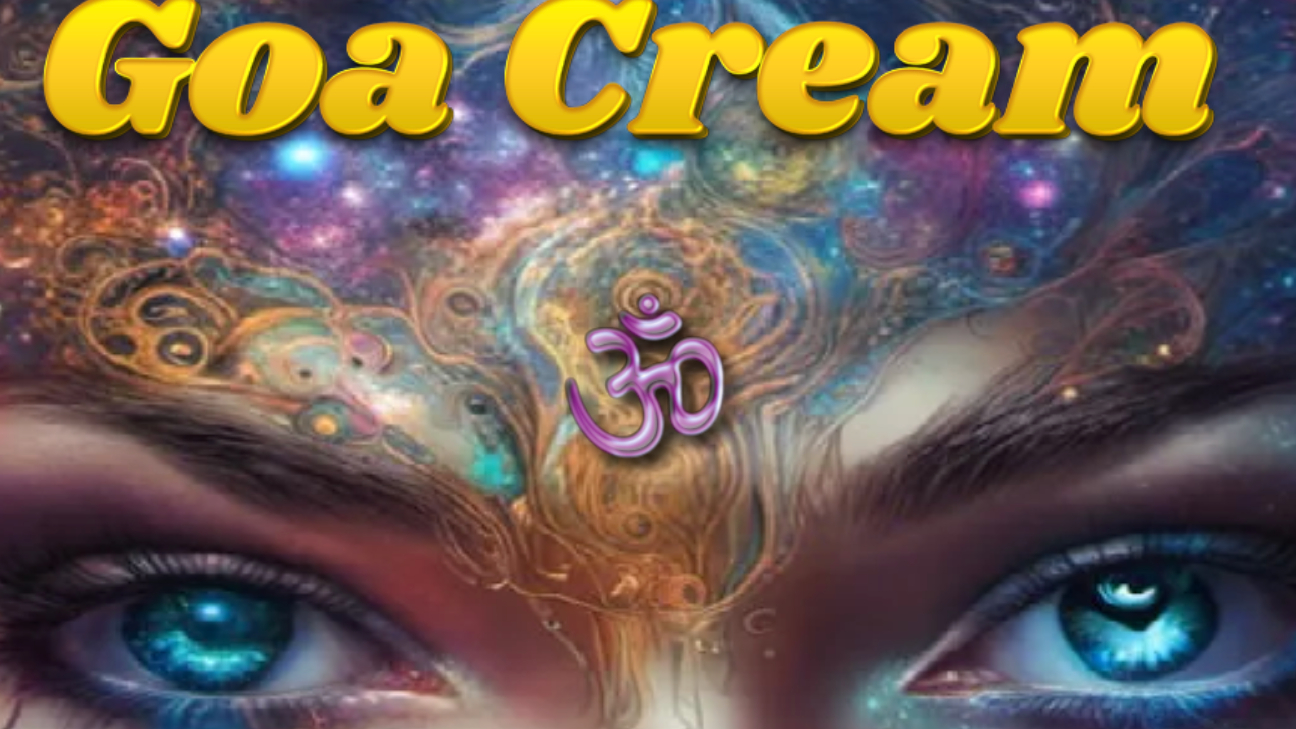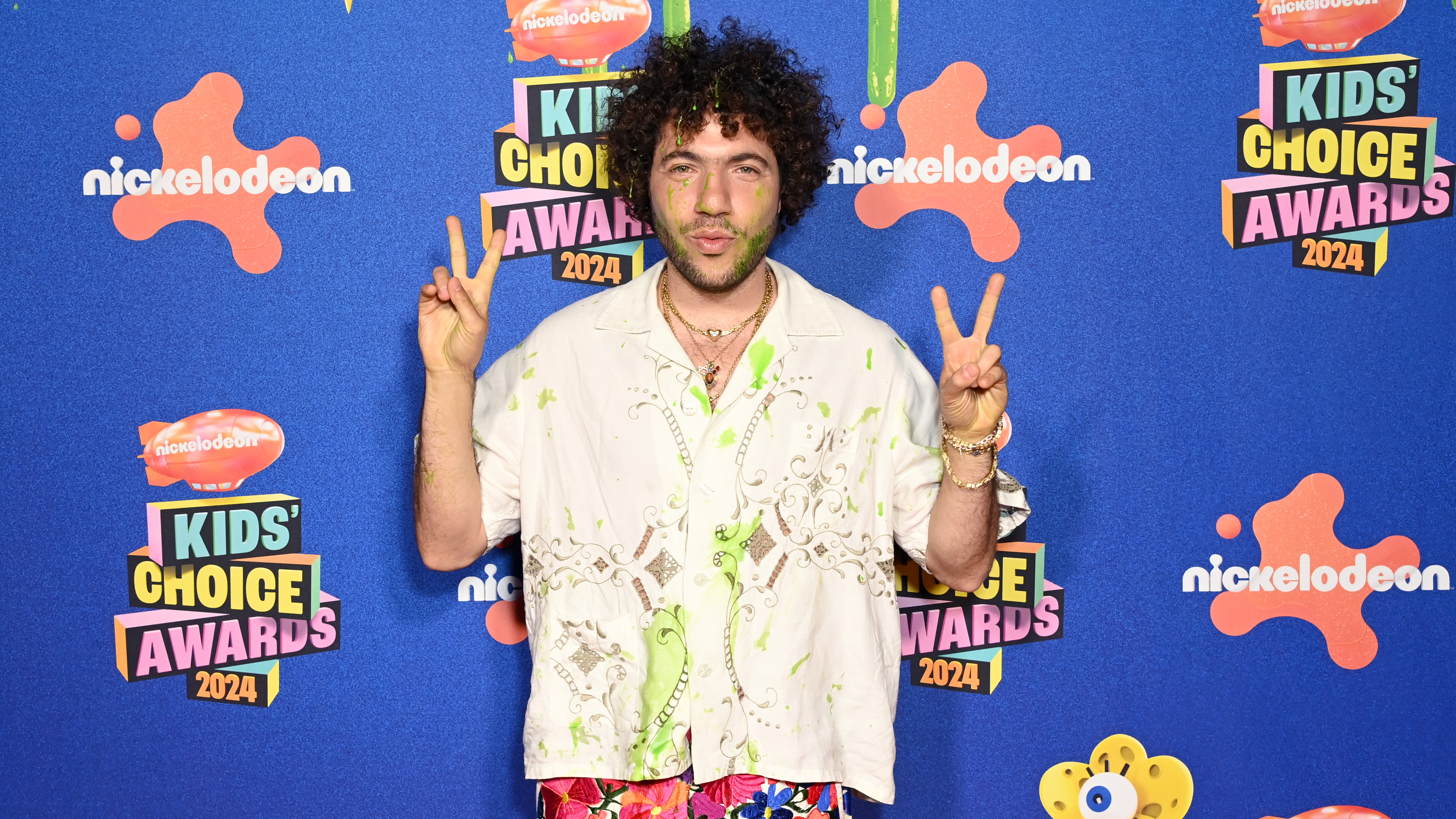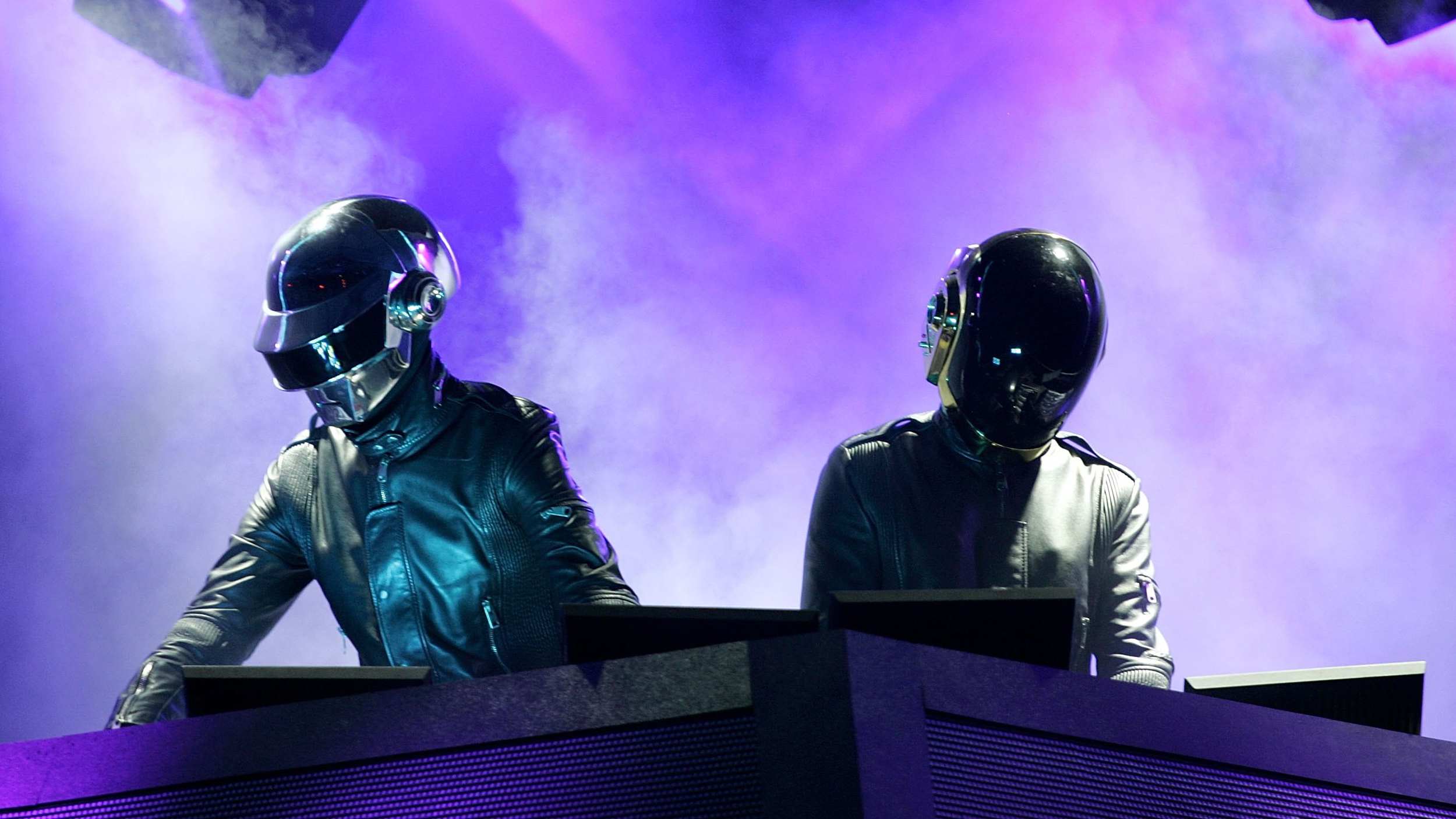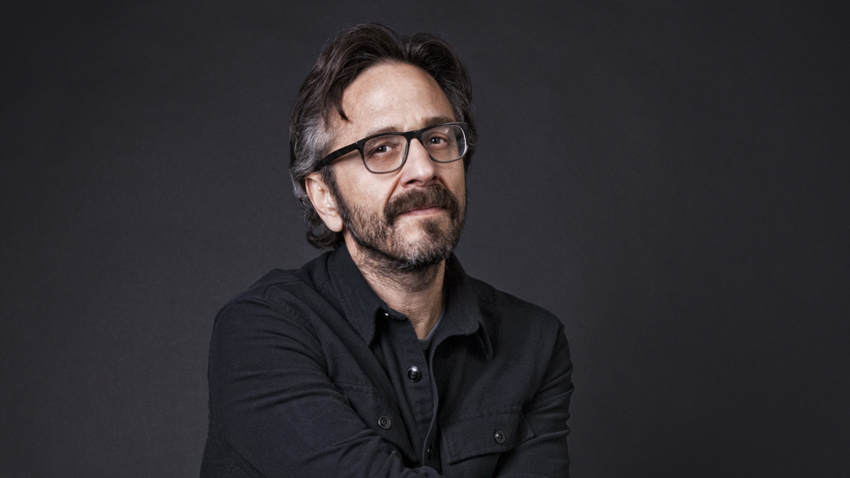
In 2009, Marc Maron retreated to his garage, and many would say he had good reason to: He'd just been fired for the third time in as many years as a radio host on the now-defunct liberal talk station Air America, and the offers for his stand-up comedy services weren't exactly pouring in.
His 20-year-plus career - he'd worked all the basement clubs, tried to land sitcom deals and even briefly hosted a VH1 game show (Never Mind The Buzzcocks) - was beginning to look like a cautionary tale. With his prospect dim, he moved back to Los Angeles from New York, set up a couple of mics and a computer in his basement, and decided to talk to a few comedian and actor friends about how they do what they do. And that's when things took off.
Heard twice weekly, Maron's WTF podcast is a blockbuster, pulling over 2.5 million downloads per month and offering entertainers of all stripes a chance to unwind, talk shop in an intimate, unforced format and even get a few confessions off their chests. Increasingly, musicians are turning up at Maron's "Cat Ranch" (he's a devoted savior of stray felines) - in the past year alone, WTF guests have included the likes of Thom Yorke, Marshall Crenshaw, Huey Lewis and Tool's Maynard James Keenan.
Music looms large in Maron's life - he's an enthusiastic at-home guitarist, although he did show off his shred skills this summer on YACHT's Party At NSA - and in his new Netflix special, Thinky Pain (which debuts today), he addresses his recent "vinyl midlife crisis" and his goal of trying to understand Captain Beefheart. Maron sat down with MusicRadar recently to talk about Thinky Pain, WTF, and how the just-turned 50-year-old media mavin continues to see music as "magic."
Thinky Pain has a real improv feel, in much the way that some musicians approach a set.
"Yeah, that's the way I do it. You gotta just roll the dice, you know? It's really about the performance than the material. If I can be in it and be loose, then I'm guaranteed to really be in it. There's an argument to be made for a professional entertainer that consistency is a positive thing, but I'd rather be in the moment than be mechanical. It's just the way I try to live my life creatively."
So it differs radically from Chris Rock, say - when he does his HBO specials, you can tell that every joke is plotted out to a T.
Get the MusicRadar Newsletter
Want all the hottest music and gear news, reviews, deals, features and more, direct to your inbox? Sign up here.
"And that's his own skill and his own feeling. That implies a disconnect for me. I'm not saying that's not entertaining, or people that do that aren't great or even memorable, obviously. But for me, I like to be engaged in a different way."
Trying to make sense of Captain Beefheart - any success with that?
"You know, it wasn't as intimidating as I thought. There are certainly different parts of Beefheart's career where it's a little more challenging, but I'm no stranger to challenging music. Some of it's just straight-up, oddball blues."
And, of course, any listener to WTF knows how much you revere the blues.
"Playing the blues, yeah. I get a lot of peace from the music. I'm very hung up on continuing to play blues guitar. I spent a big part of my life being intimidated by and feeling insecure about my guitar playing. It's something I do for myself. I go out to my garage and play. I've got some nice guitars - not amazing ones, but they're pretty good ones.
"It's interesting: I've played all my life, by myself, and I have gotten better, which is kind of weird. I think a lot of people my age hit a wall with that kind of thing. But I've been sort of persistent with it, and I'm trying to integrate some new things into my playing. I'll get something stuck in my head - I'll hear a Peter Green riff or a BB King lick, and I'll be like, 'What are they doing there?' I don't spend a lot of time listening to blues, not as much as I used to, but when I play guitar, then it's almost exclusively blues."
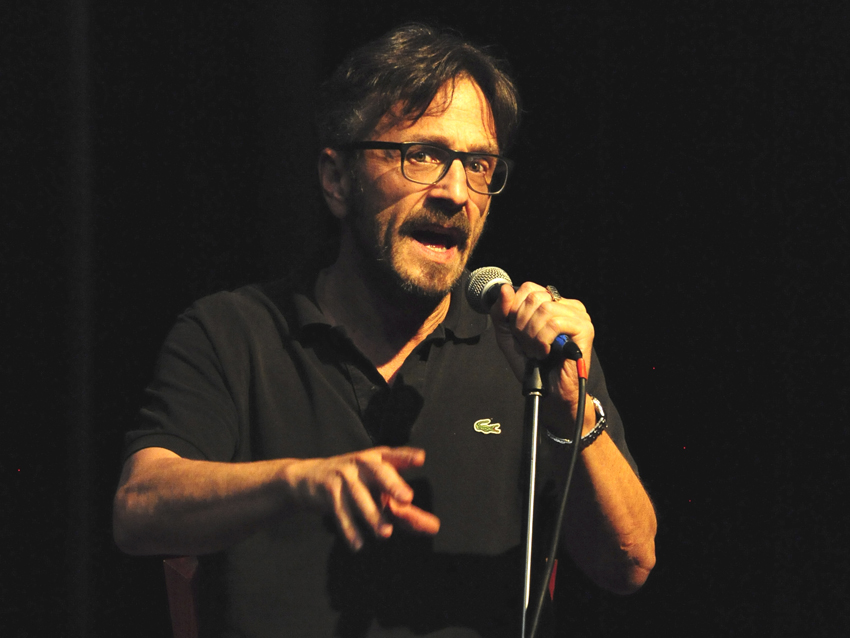
© Gene Ambo ./Retna Ltd./Corbis
You did some cool, whacked-out blues shredding on YACHT's Party At The NSA.
"That's dirty, isn't it? [Laughs] That's dirty guitar playing. You know, it's the same thing as my comedy. When I was a kid, I never learned leads; I figured out how to plot that stuff out. You know, if you listen to people in great bands, they can repeat a lead, give or take a note or two, just perfectly every time. I was never one of those guys. I knew the scales, but I would just go at it in the moment.
"The YACHT song I did the same way. We had no plan. We did two or three takes, and they were like, 'We got it.' I knew what they were looking for - something that landed from another planet tonally into this very well-orchestrated new wave song, and that's what I did."
We've had plenty of actors and comedians who've attempted dual careers in music - some are good, most of them... not so much. I get the feeling you're not going to go that way.
"You know, it's hard a lot of time, and it's gotta be weird: If somebody is a star and they have this great passion, there's no reason why they can't pursue what they love. It's tricky. Like, I wrote this book, and people say, to me, 'Hey, you're a really good writer.' But I'm very clear to make the case that, yeah, I can write, but I'm not a writer. I have a good friend who's a writer, and he's a genius. That's what he does - he writes. So I wouldn't diminish the work that he puts into his creativity by calling myself a writer.
"So I think that it's a weird line when you have somebody with some notoriety, but they've got this other talent that they'd like to indulge. I don't think that necessarily makes them a musician; rather, it makes them somebody who can play music. It's sort of what you commit your life to and what you go through as art. Music is very tricky because it feels good. It's not unlike the taking of photographs - if you know three chords, you can sort of express yourself musically to one degree or another. So it's a very pleasant thing to do. But if you want to say, 'All right, you have to reckon with me as a musician now,' well, then you'd better be a musician." [Laughs]
In another segment of Thinky Pain, you talk about visiting Jack White and seeing all of his McIntosh amps. You thought about getting one, but they were too expensive. Did you settle on a lower-priced amp for your stereo system?
"I got a Rogue Audio Cronus Magnum. They're a company out of Philly. It's something that this store I was in had. It's a big piece of equipment. It seems to be doing the job. I got some Sonic Sonus Faber Toy Tower speakers, and I ended up with a Pro-Ject Xperience Classic turntable. There's still part of me that wants to crank Zeppelin, so I might have to get a preamp of some kind."
You've mentioned that you're experiencing a "vinyl midlife crisis." What does that means exactly?
"Well, you're gonna blow out somehow when you get to be a certain age. I seem to be doing it with vinyl. You get this sort of thrill of buying the machinery, and then you get the nostalgic kick when you get the music you want to listen to, and with me it's vinyl. And then you get the excitement of listening to that music through good equipment and hearing it like you've never heard it before. The vinyl midlife crisis idea is that, well, I got this equipment but I can't wrap it around a tree and hurt myself with it. I can't get into trouble by fucking it [laughs], and it didn't cost me that much money, so it's a pretty safe midlife crisis to have."
Do you gear up to talk to musicians on WTF in a different way than you do with comedians?
"Well, obviously, I understand comedians to a certain degree because they're my brethren. I love music, and I think that musicians are wizards. To me, on some level, comedy is kind of a trick, but music is magic. It really is very mysterious. You can return to a song throughout your entire life and be taken to the same place or even a deeper place - if you're careful with it and don't abuse it. You can burn yourself out on anything, but some songs stay with you forever.
"Talking to musicians, I didn't know what would happen with that. I knew that I wanted to talk to people I liked, people who had a story. I think I do all right with musicians. Now, some people who represent musicians will be like, 'You wanna talk to this guy?' And I'll say, 'Sure. That sounds great.' But I feel a little out of my league sometimes in terms of how to discuss things. I've done some pretty good music interviews, but I come to it not as a guy who's played music his whole life but as somebody who appreciates it."
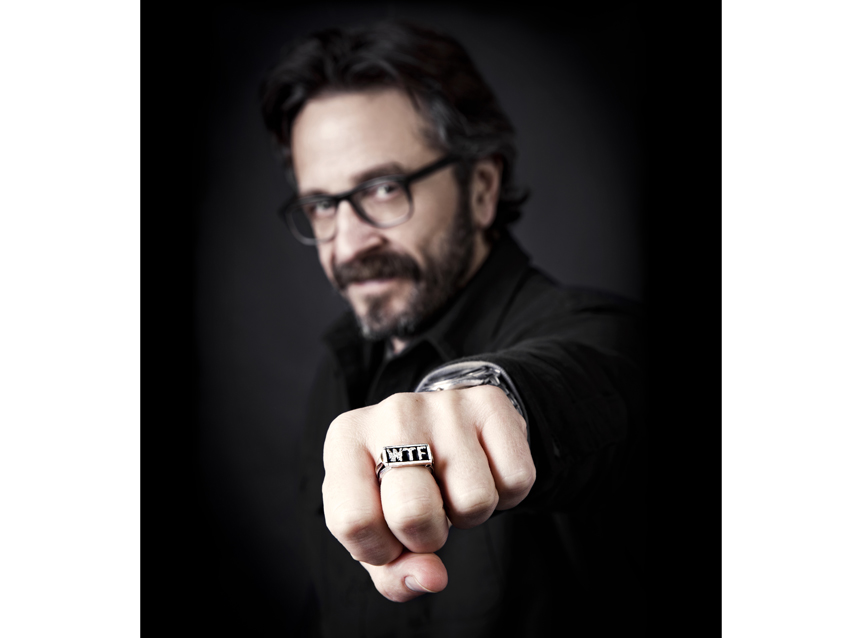
© Leigh Righton
"It's a learning thing for me, too. When I'm sitting and talking to Mike Eagle, you know, I don't know rap. I need to be educated. I have my feelings about it within my small experiences with it, but rap is this guy's life, so I need for it to be put into context for me.
"You can be a fan of somebody, but it doesn't mean you have all of their fucking records. It can be tricky. But I'll do that - and then you find that he's made, like, 20 records. You can't go album by album. I have to remember that what I do best is get to the human side of people, and I try to be respectful and listen.
"Like Maynard James Keenan - you know, I wasn't really Tool guy; it wasn't my kind of music. I understand it, though. He's got an image and a certain mystique, and that's the way it is with some musicians, whether they carry that intentionally or as a defense. Musicians don't always need to speak. You can project more onto music and musicians than a guy who's telling jokes. You never know what you're going to get when you talk to some people. But with Maynard, you know, I respect him as a musician and I liked what I listened to. He was a very cool guy, and I know that he likes comedy. I thought that the most interesting part of that conversation was his history of working in pet stores.
"Dave Alvin was great. I love his music, and he let me play with him, which was thrilling. And Nick Lowe, when he played The Beast In Me, that was fascinating. It was mind-blowing. That's one of my favorite songs ever. To see these guys play in my garage - I don't have a studio, I'm just sticking a mic into an acoustic guitar. I'm having them sing on the SM7s that I use to record interviews, and I'm riding the levels, just watching my computer screen so it doesn't max out. To watch J Mascis play guitar… I mean, some of these guys are just fucking geniuses.
"I've got an interview with Josh Homme. The great thing about him is, he'd been through a pretty dark time. This last album was sort of his coming out of that. But I remember having that second Kyuss album, and I would be like, 'This is so deep.' There was something about those riffs and grooves - they're really unto themselves. He's been very true to himself as a guitar player. He's evolved on his own path, but what he was when he was 19, it's still there."
You've had some pretty great musicians on the podcast, but is there a dream artist you'd love to talk to but haven't been able to land yet?
"There's a lot of people I'd love to talk to. Keith Richards would be great. I'd really like to talk to him, definitely."
Do you remember the first record that made a big impression on you?
"That would be The Beatles' Second Album. There's a cover on there of Roll Over Beethoven, and the very first riff on that, the Chuck Berry lick, just killed me. The sound of that cut through me. I was obsessed with it. I was just a kid, of course. Also, I Saw Her Standing There - is that on The Beatles' Second Album?"
That was on Meet The Beatles!, their first US album.
"Yeah, I loved that, too. There's just something about that groove - it's pretty much a Berry riff. So I would follow that lick, and it eventually led me to Chuck Berry and trying to learn that kind of guitar. My father was a big oldies guy, so I was immersed in his music as a kid. He was hung up on Buddy Holly, and there was that song The Stroll. I was in it with the oldies thing when I was 10 or 11.
"That simple I-IV-V business was pretty plowed into me by my old man, and that sort of took me into the Stones. I went through a lot of different periods with records and people who influenced me. Beggar's Banquet, Let It Bleed, Exile… I think Beggar's got the most mileage with me. It's just beautiful, that one."
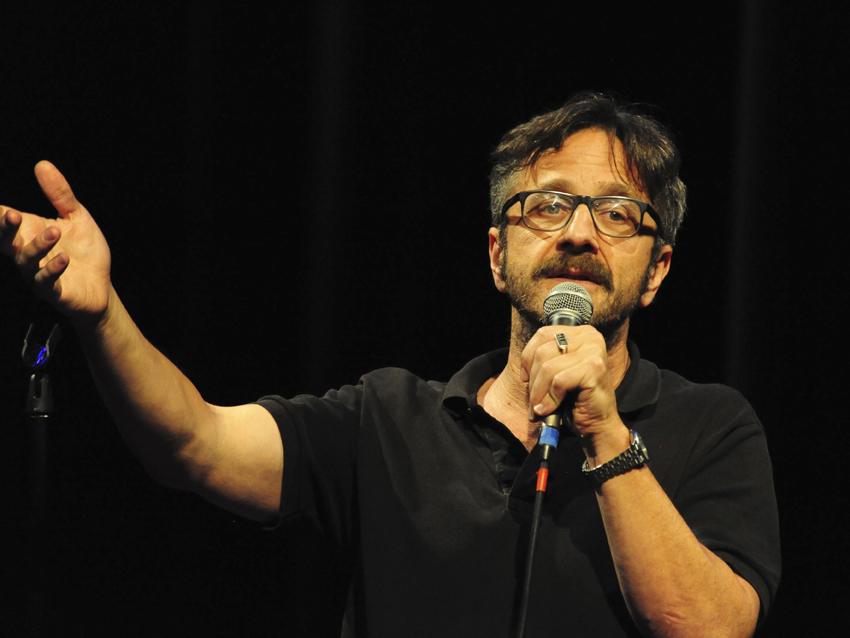
© Gene Ambo ./Retna Ltd./Corbis
"There are albums that I've listened to the fuck out of and I still go back to. Tom Petty's first album, Elvis Costello's Imperial Bedroom, Band Of Gypsys, Lou Reed's Transformer… I'm a huge Iggy Pop fan. Once I wrap my brain around him, it's like, 'Holy shit!' The Stooges records and Iggy's Lust For Life - that's crazy stuff.
"I've been listening to Nilsson lately. He's one of those guys where I'd always heard about him, and I'd seen his records since I was a little kid, but I never went there. Just recently, I went there, and I was like, 'Jesus Christ, this guy's amazing!' I guess I was never able to process it before. Same with Todd Rundgren - I just got his first two albums."
I'm curious - when you were a teenager, did you ever have any real musical aspirations?
"I just never thought I was good enough. When I was younger, when most people get into playing rock 'n' roll, I was very limited, and I didn't seem to have the wherewithal to broaden my palette - or I didn't have the idea of the discipline that it would take. I just wanted to make sounds and feel the thrill of playing guitar, but I didn't want to work. I was in a couple of bands that knew four songs." [Laughs]
I've seen pictures of you playing an SG - is that your favorite?
"I was always a Fender guy - I was a Keith Richards-Telecaster guy for most of my life - and then I got into Strats. I had an SG that I couldn't handle, so I sold it. I got a new SG, but I don't play it that much. I like Les Paul Juniors, the TV models. When I figured out that the Juniors can make you sound like Johnny Thunders, I was like, 'Shit, this is great.'
"Epiphone sent me a Dot, which is a version of the 335, the Chuck Berry guitar. I was always fascinated with that guitar, but I always thought it would be too smooth. Now I got one, and it's the fuckin' greatest guitar in the world! I didn't realize how dirty you could make it and how deep the tone was. You can dirty that thing up but still get a deep, deep tone. That's what I played on the YACHT song. I go right into a tube amp - I don't use pedals - so it's into a Blues Junior, and I crank up the gain. It sounds great."
Going back to the idea of vinyl and the nostalgia factor: People are buying more vinyl today than in recent years, but do you think that music means the same thing to kids nowadays as it did to you when you were younger?
"There's different levels of thinking to that. You know, there was always a disposable element to some pop music, and I think that's more the case now. You've got your one-hit wonders, your bubblegum pop, and there's some time-specific music that doesn't have any traction but still generates a lot of bread for some people. It's not unlike all content now. There's always going to be some sketchy shit, but I do think that great music stands the test of time. Listening to new music on vinyl, it is a specific experience, no matter what anyone says - it is different.
"Music is always going to be magic, but I do think we've lost something about the ritual of playing records and consuming albums. But that's because I'm an old fart. [Laughs] If you don't have that in your history, it's sort of meaningless. It's a hard sell. You just have to believe that great music is magic and to appreciate it."
Joe is a freelance journalist who has, over the past few decades, interviewed hundreds of guitarists for Guitar World, Guitar Player, MusicRadar and Classic Rock. He is also a former editor of Guitar World, contributing writer for Guitar Aficionado and VP of A&R for Island Records. He’s an enthusiastic guitarist, but he’s nowhere near the likes of the people he interviews. Surprisingly, his skills are more suited to the drums. If you need a drummer for your Beatles tribute band, look him up.




